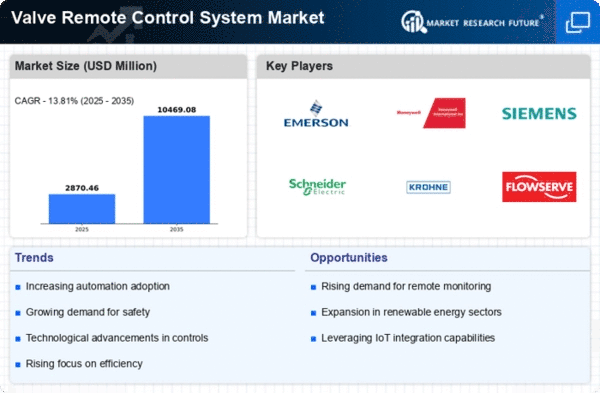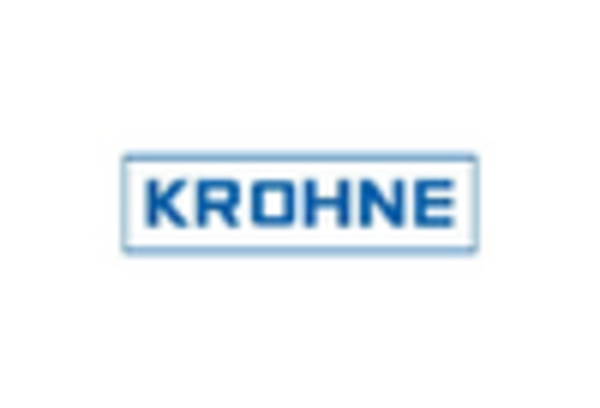Market Share
Valve Remote Control System Market Share Analysis
The valve remote control system market is experiencing noteworthy trends, reflecting the dynamic landscape of industrial automation and control systems. One prominent trend is the increasing integration of advanced technologies in valve remote control systems. As industries strive for enhanced efficiency and operational control, there is a growing demand for smart and connected solutions. Modern valve remote control systems are incorporating technologies such as Industrial Internet of Things (IIoT), sensors, and advanced communication protocols. This trend aligns with the broader industry push towards digitalization and the adoption of intelligent systems for seamless monitoring and control of valves in various industrial processes.
Moreover, the market is witnessing a shift towards wireless valve control solutions. Traditional wired systems are being replaced by wireless technologies that offer greater flexibility and ease of installation. Wireless valve remote control systems not only reduce the complexity of cabling but also enable remote monitoring and control, contributing to improved operational efficiency. This trend is particularly relevant in industries such as oil and gas, where valves are often located in remote or challenging environments.
Environmental considerations are also influencing market trends in the valve remote control system sector. As industries focus on sustainability and energy efficiency, there is a growing demand for valve control systems that contribute to reduced energy consumption and environmental impact. Manufacturers are responding to this trend by developing energy-efficient systems with advanced control algorithms that optimize valve operations. Additionally, the integration of predictive maintenance features in valve remote control systems helps minimize downtime, further enhancing operational sustainability.
Furthermore, the market is experiencing a trend towards modular and scalable valve control solutions. Industries increasingly favor systems that can be easily customized and expanded to accommodate changing process requirements. Modular valve remote control systems allow for the integration of additional valves or functionalities without significant modifications, providing a cost-effective and adaptable solution. This flexibility is particularly beneficial in industries undergoing expansions or those with evolving operational needs.
The push towards Industry 4.0 and the Industrial Internet of Things (IIoT) is driving advancements in valve remote control systems. The ability to collect and analyze real-time data from valves enables industries to make informed decisions, optimize processes, and enhance overall efficiency. Valve remote control systems are evolving to become integral components of connected industrial ecosystems, allowing seamless communication and integration with other automation and control systems.
Additionally, safety features are a significant focus in the development of valve remote control systems. Industries with critical processes, such as oil and gas or chemical manufacturing, prioritize the safety of their operations. Advanced valve remote control systems incorporate fail-safe mechanisms, emergency shutdown functionalities, and cybersecurity measures to ensure the reliability and security of critical processes. This trend is in response to the increasing awareness of the importance of safety in industrial operations.
Cost-efficiency remains a key factor influencing market trends in the valve remote control system sector. Industries are looking for solutions that offer a balance between advanced features and cost-effectiveness. Manufacturers are responding to this demand by optimizing designs, utilizing cost-effective materials, and streamlining production processes without compromising the reliability and performance of valve remote control systems.
In conclusion, the valve remote control system market is undergoing significant changes driven by the integration of advanced technologies, wireless solutions, environmental considerations, modular designs, Industry 4.0 initiatives, safety features, and a focus on cost-efficiency. As industries continue to embrace automation and seek smarter control solutions, the valve remote control system market is poised for further innovation and adaptation to meet the evolving needs of diverse industrial applications.



















Leave a Comment